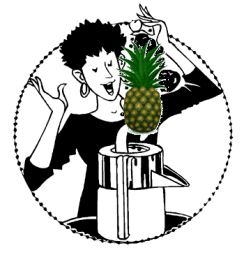This day my wife is feeling sick and she doesn’t want to see a doctor.
I can’t figure her out how she is being so stubborn.
I’ ve never read anything so well explained, so clear to understand. Thanks so much!..Huggies!
Hi Ana Luiz:I’ve asked how would I say…Dar com os burros n’agua…
So…I can’t figure out how to learn all kinds of Phrasel verbs,some I’ve got them speaking or paying attention on movies,but others I really can’t figure them out!!!
Thank you so much for this podcast it´s really important for us
O loved your explanation. Thanks.
CORRECTION:
This sentence: More complicated than you anticipated
Could be:
More complicated than you expected
Another doubt:
How would I say:
“Dar com os burros n’agua”
Tks
very nice this website, to read and listen to the disciplines of English! very good!
Hello there Ana Luiza, thanks for a lot of help, your podcast helps me so much!!
keep doing this execelent action !
see yo !
Zecca
Excelent!
Tem muitas coisas em inglês que para mim são “figure out”. Mas continuo aprendendo esta linguagem tão rica e universal…
Você tem contribuido para me auxiliar. Thank you Ana luiza
Excelent!!
Thank you Ana Luiza! ![]()
I can’t figure out the Relativity Theory! Can I say “I am figuring out the English language” ? See you later alligator!
Oh, yep! “Figure out” is so commom in sitcoms and books. I’m reading “Dear John” and I noticed that “figure out” pops up lots of times.
So, I can’t figure my boss out. He never lissen when we talk with him and always wanna things in him way. He is a difficult person to dealing with and I can’t figure him out the most of the time. I mean, he is a great manager and he did a lot of improves on the company but he doesn’t know how to deal with people.
p.s.: Ana, please, if I wrote something wrong, could you tell me?
Congrats again for your job here. I love your podcasts. ![]()
Thank you for the podcast. Very usefull !
Hugs
Hi Ana,
You’re completely right. I love watching sitcoms and “figure out” is an expression that they use a lot.
Talking about sitcoms. I’ve watched “The Big Bang Theory” and It’s so funny, but I’m tring to figure Penny out, because sometimes she seems that likes Leonard and other time she shows up with a new boyfriend. But no problem, I’ll keep watching and I’m sure I’ll figure her out.
Bom dia Ana.
Gostaria apenas de expressar meus agradecimentos em bom portugues mesmo,pois tenho aprendido muito com seus Podcasts. Faço download de um por um, e tenho um pen drive cheinho deles. Junto com os Podcasts do Dr Jeff Mquilan, hoje ja consigo falar e entender 90 % do que ouço. Detalhe : Comecei mesmo estudar inglês há seis meses apenas e nunca frequentei escolas ou cursos de inglês.
Parabéns Aninha, e obrigado por deixar a nossa disposição todo o seu conhecimento.
Caso leia esse comentário e quiser me responder, poderia faze-lo no meu e-mail ?
Tenh uma ótima semana.
Marzio Oliveira



 So this episode is dedicated to giving you examples of how to use figure out. I’m gonna go for the most common ways I know to use this expression, OK?
So this episode is dedicated to giving you examples of how to use figure out. I’m gonna go for the most common ways I know to use this expression, OK?